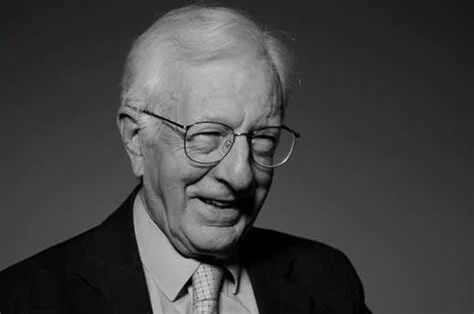Lessons on Happiness from Experts
Over the course of two recent webinars, three knowledgeable speakers – Robert Waldinger, Martin Seligman and Richard Layard – shared their views on what we need to know about creating and increasing happiness in the current climate
Robert Waldinger
Robert Waldinger
Prof Robert Waldinger of the Harvard Medical School has been involved in a 75 year long study of adult life. He shared his thoughts in the first of two webinars on happiness in the current climate.
Relationships are Vital
An essential finding from this study is that meeting our basic needs is vital, but beyond that money doesn’t increase happiness. Instead the most important factor is relationships.
In this current moment we’ve been suffering from two extremes. We haven’t been able to connect as usual, socially and with the wider family unit. At the same time we’ve had continual enforced contact with those closest to us. Not surprisingly this has presented challenges..!
We have to recognise that relationships don’t take care of themselves, but instead need tending. We need to work on our social fitness in the same way that we should work on our physical fitness. It’s not difficult to do though. We need to take the initiative, reach out, and ask questions.
“What’s is like for you?”
It’s particularly important to do this for those who are socially isolated. Turn thought in action and make the call or send a text or email to that person who’s on your mind.
Physical Distancing rather than Social Distancing
The terminology we’re using could be better. We need to be physically apart, but socially we need to get closer.
Us and Them
Social distancing, applying an us and them narrative to our world is damaging. Divided we suffer, together is much better. Together leads to greater freedoms for all of us.
Self Care
At the same time we have to take care of ourselves, in order to care for and support others. “You can’t pour from an empty cup”.
There’s no one size fits all route to self-care, but some combination of music, food, art, prayer, love and pets works for many.
A mindful, meditative approach can be incredibly beneficial. Humans have a tendency to focus on the content of their minds rather than what’s immediately around them. This can lead to our auto-pilot kicking in. Consciously decentring from our thoughts, and focusing directly on what’s around us, what we’re experiencing in the moment, can increase our awareness and relieve our suffering in the moment. Go for a walk and ask yourself: “what is here that I haven’t noticed before?”
Richard Layard and Martin Seligman
Richard Layard
Action for Happiness co-founder Richard Layard was joined by the 'father' of Positive Psychology, Martin Seligman to discuss happiness, resilience, positive education, rebuilding after the crisis and more.
They discussed the different views on what creates happiness, and what is most useful in the current situation.
Subjective Wellbeing or Realistic Optimism?
Should we be attempting to achieve an emotional, feel-good sense or employing a cognitive approach?
Interestingly, in the middle of a pandemic, a cheery approach, having as much fun as possible is more immediately positive than a cognitive approach. Seligman advocates good food, making love and a puppy!
As we come out of the pandemic, realistic optimism, a sense that “this too will pass” has more impact. It’s the moment when we need to radiate and inspire hope.
Martin Seligman
Catastrophic Brains
The problem is we have brains that are biased towards the catastrophic. And we are fighting two victimology industries – journalism and politics. We need to prevent the catastrophising voice in our heads from feeding on the bad news. In the face of them we will benefit from turning to realistic optimism. How?
As an exercise, conjure the worst that could happen, then conjure the best, and then think about the most realistic, which will be somewhere in between. This will allow you to identify and aim for a realistically optimistic view.
We need to be flexible as well and find the right balance between optimism and pessimism depending upon the consequences of the situation we face.
Altruism
Finding joy in the face of situations such as a pandemic is hugely challenging. Altruism, solidarity, fellow-feeling are roads to happiness. Finding kind things to do for others creates powerful positive satisfaction.
In the face of our zero-sum culture this can be difficult. The answer is to be a PERMA person. Taking positive action, however small or limited, gives a sense of agency, which in turn is a driver of individual and collective progress.
Who’s Losing Most
The U shaped curve of happiness has been distorted. The youth are least happy; they’ve been locked up, their career prospects are declining, they’re paying the price for protecting the old. There needs to be a real focus on a new deal for the young.
The Silver Lining
Looking at the situation with realistic optimism offers 3 silver linings:
a) There is an improved sense of solidarity amongst many
b) There is a growing awareness of the importance of the mental life and wellbeing
c) We may be doing the impossible, and getting governments to rethink their purpose
Links
For more on Robert Waldinger’s work:
https://www.ted.com/talks/robert_waldinger_what_makes_a_good_life_lessons_from_the_longest_study_on_happiness
For our thoughts on Martin Seligman and PERMA
To see the full webinars from Action for Happiness:
Robert Waldinger: https://www.youtube.com/watch?v=ux2pPxQ2PNs
Martin Seligman and Richard Layard: https://www.youtube.com/watch?v=Po8ZP8FU7Pc






